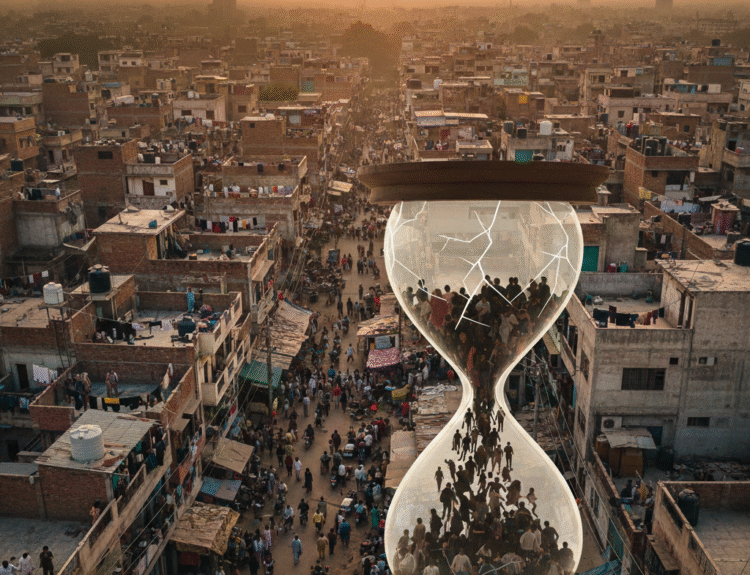
The way we shape our children behavior goes beyond just teaching them right from wrong .The way we respond to their actions -whether bad or good -plays a profound role in cultivating their habits and values.
When we positively reinforce good actions, such as helping others, we encourage empathy. Conversely, by appreciating bad actions regardless of their lasting consequences we support risky future behavior.
A Canadian-American psychologist Albert Bandura’ Bobo doll experiment was a series of studies that demonstrated how children learn behaviors by observing adults. Bandura emphasized that human beings are weird to learn with the initiation of learning process at very young age by illustrating a Bobo doll experiment that unravels the impact of keen observation, attention and imitation on child behavior.
He performed experiment with the school going children of age 3 to 6 to explain and predict how they learn from others. A person (called Model) performed some behavior (actions) in front of children. The entire sample of students was divided in 3 groups.
Aggressive model:His behavior was shouting, beating and throwing away the doll. Non-Aggressive model: 2nd group of observed the model playing with the doll and behaving in cool and calm state. No model: 3rd group did not observe model.
All those children were placed consecutively in a separate room full of toys including Bobo doll. The striking results were found as: 1st Group: They observed, recorded and retrieved the same aggressive behavior towards the doll. Their behavior showed hostility, shouting and physical violence. 2nd Group: They were not aggressive. They played calmly with toys. 3rd Group: They were also playing like normal kids with least aggressive behavior.
While conducting experiment he added another perspective of punishment and reward. Punishment referred to any stimuli given to reduce the unwanted behavior. For example the model was scolded on ruthless attitude. Reward was something pleasant given to encourage morality like the model was appreciated or given a candy for being sensible.
Aggressive model and punishment: The adult model was punished on aggressive behavior towards the doll. Those children who observed the model being punished didn’t behave aggressively towards the doll.
Non-Aggressive behavior and reward: When model played peacefully with the doll he was awarded for being ethical .The children observing such situation were more likely to imitate this behavior.
This Bandura’s Bobo doll research shows that the environment shapes the behavior of children. They learn from social figures around them. The more the model is an influential figure (like mother, father, teacher, movie hero, cartoon character), the more the chances of imitation of his behavior. Moreover, those behaviors that are reinforced positively are more likely to happen again and those who are punished on their unacceptable behavior become cautious for their next move.
Enroll small gestures in your daily affairs, like giving a candy to a child who shares his toys with siblings, thanking others to guide you and seeking permission before taking a picture with somebody. When our children will see us doing such fruitful activities then they will be a better person in themselves.
Sometimes we mimic the behavior of our near ones unconsciously .We experience our children behaving like us or like their favorite figures. Consider a boy of 6 years watching cartoons attentively in which the main character (model) is showing power by beating his enemies. The behavior of the model is retained in boy’s mind because he admires that cartoon character. In this case, power means aggressiveness, hostility, physical violence and shouting to him. The child when bullied at school will see the teaser as his enemy. He will imitate his favorite powerful cartoon model to cope up the situation. His behavior will show aggressiveness and hostility towards the bullies due to the phenomena of close observation, retention and imitation explained by Bandura.
Likewise, a child who is observing her father fighting and arguing with her mother will learn that behavior is acceptable and applicable to become dominant. In contrast, if she sees her father behaving in a good manner even on some setbacks of her mother, she will learn to forgive. Being humble and kind on the grey areas of others will be the part of her adulthood personality.
Taking into account a student who joined late but excelled in final exams is being appreciated by professors for his consistency. This positive reinforcement and encouragement will bring mind blowing outcomes in his educational journey. He will become more curious to quench his thirst of learning. Similarly, a student who struggled but improved greatly after adapting teacher’s teaching methods, should be appreciated. If he does not get the social appreciation he will lose interest in the learning process.
The need of the hour is to bring adaptation in our behavior to shape the behaviors of upcoming youth. Bandura’s research facilitates us in every field like parenting, teaching and official management. We should be aware of our behaviors, thinking and sayings.
Staying humble and gentle will bring inner satisfaction making innovations in our children’s actions. The point to be pondered is that our little struggle can make a huge difference. We have to play our role to make this society and world a better place to live in .Our one action and normative behavior can be clicked in someone’s mind making him a responsible citizen too.
Enroll small gestures in your daily affairs, like giving a candy to a child who shares his toys with siblings, thanking others to guide you and seeking permission before taking a picture with somebody. When our children will see us doing such fruitful activities then they will be a better person in themselves.
Enroll small gestures in your daily affairs, like giving a candy to a child who shares his toys with siblings, thanking others to guide you and seeking permission before taking a picture with somebody. When our children will see us doing such fruitful activities then they will be a better person in themselves.
—
The writer is an undergraduate student in Psychology and can be reached at shanzashadab@yahoo.com




